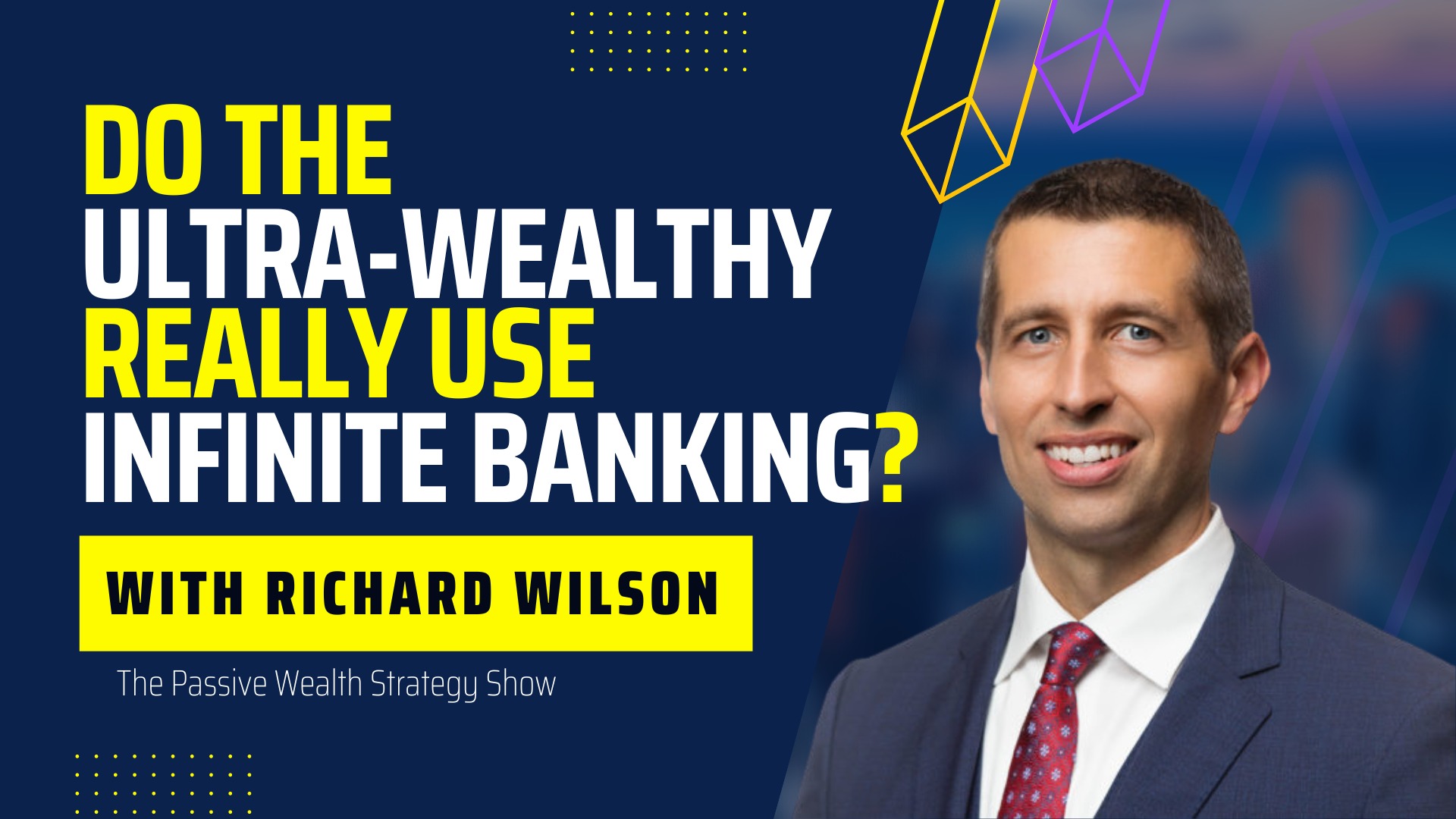Where does money stand today? Daniel Ameduri is the editor of the Wealth Research Group and the cofounder of Future Money Trends Letter, FMT Advisory and Crush The Street. In today’s episode, he dives into the real meaning of financial independence. Daniel shares in-depth insights on today’s interest rates and does a comparative analysis between the 2007-2008 financial crisis and today’s financial state. Discover how we can protect ourselves from suffering another financial crisis and how we should handle debt situations skillfully. On the side, find out the two safest crowdfunding investments out there.
—
Lessons From The Financial Meltdown with Daniel Ameduri
Our guest is Daniel Ameduri. Daniel is the editor of the Wealth Research Group and the Cofounder of Future Money Trends, FMT Advisory and Crush The Street. After warning family and friends in 2007 about the coming market and mortgage collapse, Ameduri started his own YouTube channel VisionVictory, which has received over ten million views. On March 18th, 2008, Daniel called for Dow 8,000, the Collapse of Lehman Brothers, AIG and Washington Mutual. During the mortgage crisis, he helped people buy Put Options on Countrywide Mortgage and those Puts saw a gain of 1,400%. He had a very interesting ride during the last financial collapse. There are certainly some very interesting times ahead of us and what we see now politically in both air and in monetary policy. We’re going to talk a bit about that and more about financial independence. He’s been financially independent for quite a while now. Daniel, thanks for joining us.
Thanks for having me on the show.
We were talking a bit about where the market stands now with interest rates both in the US and internationally and some effective yields being negative in certain areas when you factor in inflation. Let’s pick that up a bit and bring the audience in. Where are things now as money goes? Where does money stand now?
We’re in an interesting place. We’re at the crossroads because the Federal Reserve and the central banks have never gone this far in the market intervention. Whether it’s our stock market where central banks have openly bought stocks, which creates volume and demand for the shares, low-interest rates, which encouraged the buybacks, which pushes the shares up. You also have heavy intervention in our bond market with quantitative easing, interest rates, which are all essentially fake worldwide. It’s a very interesting time. I’m not a doomsday guy, but I’m on the conservative side. I’ve been changing a lot of my investments and rotating out of anything that’s lower quality or a little risky and beefing up the quality and beefing up the cash positions that I have.
Depending on who you ask, the last crash was revved up by the federal and monetary policy prior to that, not having interest rates quite as high as the market would have them. Here we stand, interest rates were at zero for a decade and they’re starting to ratchet them up very slowly. Many people will say that they waited too long to do that. I agree, but where do you stand there? Should they have caught down to zero in the first place? Should they have started bringing rates up a few years ago? What are your thoughts there?
If you have good debt, make sure it's sustainable. Click To TweetIt’s easy for us to money monitor back, but it’s very hard to go back to what they should have done because what they should’ve done is what no one would have ever done. They need it to allow the bad debt and the bad businesses to be washed out of the system. The recession and severe crash we had in 2008 and early 2009, if anybody would have had the balls to let it happen, they should have let it happen. We would’ve had an ugly 2009, but we’d be sitting here with the healthiest economy in a few hundred years. Unfortunately, they took everything that was bad and they propped it up. Instead of the good prudent bank’s increase in their market share, the bad zombie banks increased their market share. Instead of the good and prudent investor who could have come in and bought real estate cheap or pushed housing prices down to make them more affordable, they propped the housing market up and pushed it up to where we’re back at 2006 levels.
In a perfect world, they should have done almost nothing or got out of the way and let all the bad debt go away. They’re in a situation where they propped it all up and they’re trying to exit out of it now. You’ve got the Federal Reserve who owns a ton of mortgages. We have SEC disclosures from central banks and the Norwegian central bank as well as the Swiss National Bank buying Facebook, Apple and Google. You’ve got central banks printing money to purchase stocks and God knows what else. It’s interesting to see what’s going to happen, but honestly, there will be some wash out at some point because no matter what, you can’t defy gravity. You can’t defy natural science and natural order. At some point in time, this is going to have to be undone. The good news is everybody in power, whether you’re in Russia, China, the United States, everybody wants to keep things stable. I don’t think anybody is going to do anything to put us into a tailspin purposely. There are some big black swans out there, that’s for sure.
In the 2008 timeframe, we’re too big to fail. We had a handful of banks that were too big for the government to feel comfortable allowing them to fail so they bought all the bad debt, printed a bunch of money, propped up all these bad banks. We’re in a situation where there are even fewer of the big banks and they’re bigger than they were before. That’s frightening. What are your thoughts about protecting ourselves from whatever the coming trouble might be as we reflect on what the trouble has been in the past? What successful strategies that worked back then that might be reasonable to figure they’ll work in the future? What are your thoughts about that moving forward?
For each individual, it’s a great time to reflect on where you are financially. Obviously, anybody reading this blog is aware and is trying to better their lives financially. The first place I would start is making sure you have enough set aside to deal with some emergency. Make sure you’re not overly aggressive with your investments. Make sure you have some nice cash sitting there waiting for you if there’s a crisis. Whatever you do in life, whether it’s a business or an employee, make sure you’re delivering your A game. If there is going to be a downturn, you want to make sure you’re not on that list of businesses that people might not interact with because they don’t need you. If you’re an employee, you want to make sure you’re not the employee that’s going to be the first one to be laid off.
Make sure you’re over-delivering in value to whatever you do in life. As far as your investment portfolio, if you don’t understand it or don’t know what you’re in, you should get out of it. You should also ask yourself if you wouldn’t buy it right now. If you’ve got $100,000 in the stock market, ask yourself, “If I had $100,000 right now in my checking account, would I buy those stocks? Would I do that?” If you wouldn’t, you should get rid of it. That’s how I analyze. I have to corner myself on what I’m going to do with an investment. That’s what you do. If you had the cash sitting in your pocket, would you make that decision? If you would make that decision, then you shouldn’t be in that investment. Evaluate the investments you want to be in.

I focus on quality, focus on income, and make sure you’re prudent and well diversified. Stocks for the long-term have a huge upside bias due to not only inflation but if you’re just tracking S&P 500 from the 500 companies that started, there’s only about 82 around right now. Now that G got taken out, the original Dow 30 is not even around. Keep that in mind. There’s always an upside bias for stocks. I’m not trying to tell you to time the market, but if you need the money in the next few months or couple of years, you should consider being in the safer side of investments. With this show being called Passive Wealth Strategies, you should either be in stocks that you can set and forget like a good Vanguard ETF or focus on those income investments from single-family homes or something where you could have some paper investments.
As interest rates tick upward presuming they’ll continue to go up, what are your thoughts on what we should be doing with our debt situation, especially for good debt that is on investment properties, for example? What do you think about there? I’d also like to give the audience more of a background as to your qualifications to talk on this matter.
I had to go through the unfortunate lesson that most investors do or business people of being under-capitalized. If you do have leveraged investments so that you can have more rental properties or apartment buildings, make sure that it is in line with something that you can afford and stress test yourself. What happened if it went vacant for a few months in a rental property? Could you maintain that or would you lose the property? If you lose the property, that’s a problem. You’re over-leveraged. Make sure that if you have that good debt, makes sure that it’s sustainable. As entrepreneurs, investors or people who make these risks, we do have a tendency to be a little more optimistic than reality sometimes. Whether how long it’s going to be rented out or how bad a problem can be with a turnover on a tenanted property on a real estate deal. Make sure you’re not overleveraged. It’s okay to have debt, but I would tighten it up. If you’ve got some properties that are not cashflowing, I would consider getting rid of them because housing prices are high. People are stretched to the max to get mortgage payments. If interest rates go up, they’re pretty much tapped out when the federal was at 1%. They’re going to be screwed once it gets to 3%. I would consider that as well to tighten up a little bit on anything where your margins are not there.
As far as your experience, your qualifications, and what your experience was going through the financial crisis, could you give the audience a bit more about your background? What was your strategy to get through the Great Recession?
I had been purchasing properties since I was eighteen years old near 2000 and I got in that overleveraged situation in LA. I had eleven homes go into foreclosure. I had to end up in a bankruptcy attorney with my wife, and my wife and I hit reset. In order to get through it, the first thing we did was cut all of our spendings. We moved to save 50% on our housing expenses. We moved twice. Once, we moved from California to the desert of California to save 50%. After living there for a few years, we saved even more by moving to Texas to save on income and daily lifestyle expenses. I’ve used moving as a way to cut a lot of spending. We did crazy things. We got rid of our dogs who had medical bills, we got rid of our TV, she sold her rings to pay off the cars, then we started focusing on buying income. We thought we could become financially independent within five to ten years. We did it in under four years.
Financial independence is when your passive income can pay for your monthly lifestyle expenses. Click To TweetI always tell people it’s very doable. My definition of financial independence is when your passive income can pay for your monthly lifestyle expenses. If you cut your monthly lifestyle expenses down, don’t try to mimic the society where you have a financed vehicle and a mortgage that’s seven to eight times more than your annual income. If you live a sustainable lifestyle, you can become financially independent faster than you think. I tried to do it in five or ten and we did it in under four, which I was surprised myself. We didn’t do it on a huge income. It all snowballs. It all compounds. We paid off the property. You’ll start to make more money as you roll into these investments. Eventually, the income will go parabolic. Financial independence, sometimes people are thinking of having that yacht and owning an island in Fiji. I’m sure that’s great, but you could buy off financial independence quick if you cut those expenses. You’ll probably get the yacht, but you’re going to get the yacht in ten to fifteen years from now and not next year. You could realistically achieve retirement type lifestyle rather quickly just by cutting expenses and stop investing for capital appreciation and start focusing on cashflow.
Early retirement sounds great. That sounds better than some lavish retirement. That sounds very enticing. As far as your current strategy prior to the interview, we talked a little bit about what you are doing now and the things related to crowdfunding that you’re up to. Can you give the audience a little bit more and give me a little bit more information about what you’re doing there, what it’s been like to get into that market, then where you see that going in the future?
There are several crowdfunding that I like, but I’ll give you the two ones that I consider the safest one. The first one is PeerStreet. They allow you to invest in real estate notes’ first trust deeds and your crowdfunding them. Some of them are $300,000 and some of them are millions of dollars. The Founder of PeerStreet is the guy who started Google analytics, Brett Crosby. One of their founding investors is Dr. Michael Burry. If anybody saw the movie The Big Short, Dr. Michael Burry was the guy played by Christian Bale. Those are the people who started this company. They’ve been a disruptor in the mortgage market because this was always a niche localized market where somebody needed a loan from a year to five years, either a bridge loan or a fix and flip loan. It’s been a localized market.
What they’ve done with PeerStreet is they’ve nationalized it. They’ve become the biggest funder. They get the best loans. You do not see defaults on these because as soon as the originator realizes there’s something wrong with a PeerStreet loan, they almost come in and buy it back because PeerStreet becomes so important to this mortgage market. The other company is a private REIT. A lot of people who by publicly traded REITs, they’ll love this because you get all the income of a REIT without the volatility. It’s not tradable and it’s not liquid and that means you might have to wait three months for redemption period or even a year sometimes. The other one I like is Fundrise.com. It’s different than PeerStreet. They’re not buying first trustees. They’re focused on more equity deals. They’re buying into an actual performing apartment building. Let’s say 300 units in Dallas or something or commercial property that might own a Walgreens as their tenant. That’s the private REIT side.
I like those crowdfunding investments. Both of PeerStreet and Fundrise, they pay right around 8% and it’s been very safe and consistent income. I’ve been involved in both of those for over a few years now. You don’t get the leverage of buying a single-family house with 20% down payment, but it’s managed by a very professional group, very serious investors, group of people. It is tied to some of these properties that you might not get exposure to. I own a lot of single-family homes, but I don’t have any Walgreens. In the Fundrise portfolio, I do have Walgreens as my tenants.

You get a lot of asset diversification there in the tenant base as well so you’re not just tied to residential.
It’s good to have diversification. That’s what is going to help you sleep at night with your income. You don’t want to have all your income coming from one single-family house or two dozen properties in Houston. What happens when there’s a major event in that area, it’s as if having a job where you can lose your income if you’re too concentrated. Have some chunks of income from all over. The stock market can be a solution, but real estate, crowdfunding and private deals as well. I get involved in a lot of bridge loans for startup companies as well.
What is the best investment you’ve ever made?
The best investment I’ve ever made was in Bitcoin. I had got convinced into buying Bitcoin at $13 and then when it went up, I became more interested in Bitcoin. I ended up being one of the earliest investors into a publicly traded company that was mining crypto. They still do mine crypto. They’re down because of the crypto market, but my best investment was into the cryptocurrencies.
You participated all the way up I assume so that’s pretty great.
Diversification ultimately is what’s going to help you sleep at night with your income. Click To TweetThat was lucky, like gambling.
Objectively, it was difficult to predict that it was going to go anywhere. The people that were in the adherence of it all the way from the beginning were always convinced that it was going to replace the dollar and such. It was difficult to predict when Bitcoin itself was going to explode and eventually hit $20,000 as it did.
My biggest losses are on crypto as well. My biggest gains are in crypto and my biggest losses are in crypto. If you go to real estate, it’s the same thing. I’ve made lots of money in real estate, but I’ve also got some big losses in real estate.
That gets us into the next question. You touched on it. What is the worst investment you’ve ever made?
The biggest disaster of my life was getting out of my comfort zone in a higher end real estate and then being undercapitalized and overleveraged. I’ve had $1 million property ended up making a short sale on it for $550,000 during the housing crisis. That was one of the biggest disasters of my life.
What did that process look like for you? Can you give us a little more granular detail as to what happened and maybe why you didn’t get out of it earlier?
I thought I had timed it right, but I was maybe a few months back behind. It caused me to max out my credit cards. It caused me not even to be able to pay off a lot of the debts for this one thing that happened in 2008. It wasn’t done in my life until 2011 because I was paying off debts and other investors that had partnered with me. That was one, but there were ten others around it. It was a lot of problems at the same time. Considering that I was also making money from buying foreclosures, I lost my income as well. It was a rough 2009 and that’s for sure.
What is the most important lesson you’ve learned about investing?
With investing, it always comes down to the people. Everybody likes to allocate their money to other people by habit, whether it’s a stockbroker, realtor or crowdfunding. In the end, it’s always down to the people who run it. I’m very careful with whoever I invest with. If I’m going to buy a property and I asked somebody who’s going to fix it, a lot of people when they’re looking at a business or an investment, they get sold on the asset. They get sold on the income statement. Let’s say you’re looking at a rental and you see 33% return or you’re looking at a business and you see a gold mine, who’s running all this discovery and all that stuff, in the end, is all that matters. 80% of the investment is going to be based on the people, their drive, their relentless attitude and their integrity. Before I invest in anything, I almost 99% make my decision off of the people at the top.
Experiences are very important in any business especially in investing situations. I’ll look at my multifamily investing that way and try to do my best to participate with the most experienced people I possibly can. I appreciate that. Is there anything else that you’d want to share with the audience from your background whether it’s in the Future Money Trends or in your own passive income life?
I love finding passive income ideas and sharing them and testing them. I do have something on my website, FutureMoneyTrends.com. You can subscribe free of my Wealth Digest or go to FutureMoneyTrends.com/cash where I have some of these ideas already laid out. The biggest thing I would leave the audience with is that my wife and I were able to do it. We were not making hundreds of thousands of dollars. We didn’t have any special degrees. We just did it. We read Rich Dad Poor Dad and CASHFLOW Quadrant and do it. I guarantee if you stay focused and don’t stop, this will happen for you.
Stick with it and make it happen. I love the inspiration of that message and the motivation behind it. Where can our audience get in touch with you moving forward?
Just go to FutureMoneyTrends.com. If you subscribe, you’ll receive what I’m investing in now and I also share some of the crazy stories that my wife and I went through as well as the new things we’re investing in.
I hope you learned something. I encourage you to look up Daniel at Future Money Trends. If you’re enjoying the show, please leave us a rating on iTunes. If you have someone, you have a friend or a colleague that could benefit from this information, please share with them and subscribe wherever you get your show. I look forward to talking with you next time. Take care.
Important Links:
- Wealth Research Group
- Future Money Trends
- FMT Advisory
- Crush The Street
- VisionVictory
- PeerStreet
- Fundrise.com
- FutureMoneyTrends.com
- FutureMoneyTrends.com/cash
- Rich Dad Poor Dad
- CASHFLOW Quadrant
- iTunes – Passive Wealth Strategies for Busy Professionals
- https://www.FutureMoneyTrends.com/author/daniel
About Daniel Ameduri
Daniel Ameduri is the editor of the Wealth Research Group and the cofounder of Future Money Trends Letter, FMT Advisory and Crush The Street. After warning family and friends in 2007 about the coming market and mortgage collapse, Ameduri started his own YouTube channel, VisionVictory, which has received 10 million video views. On March 18, 2008, Daniel called for Dow 8,000, the collapse of Lehman Brothers, AIG, and Washington Mutual. During the mortgage crisis, he helped people buy Put Options on Countrywide Mortgage… these Puts saw a gain of 1,400%.






